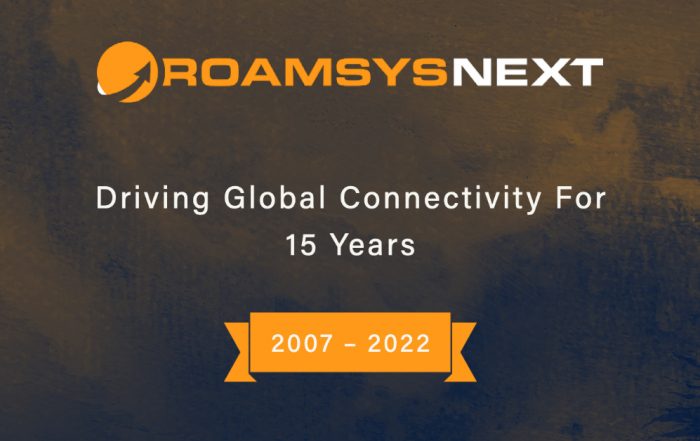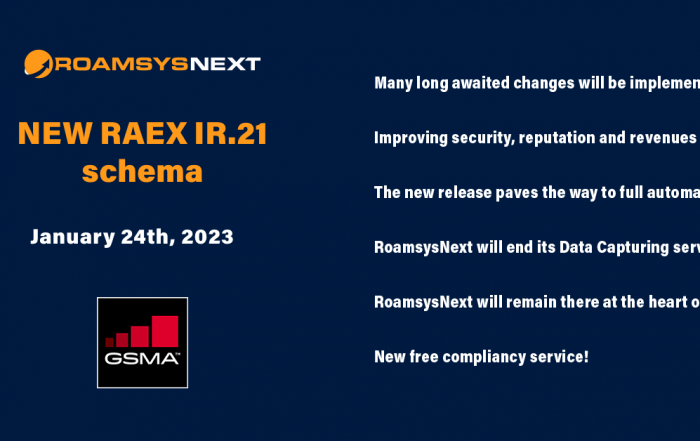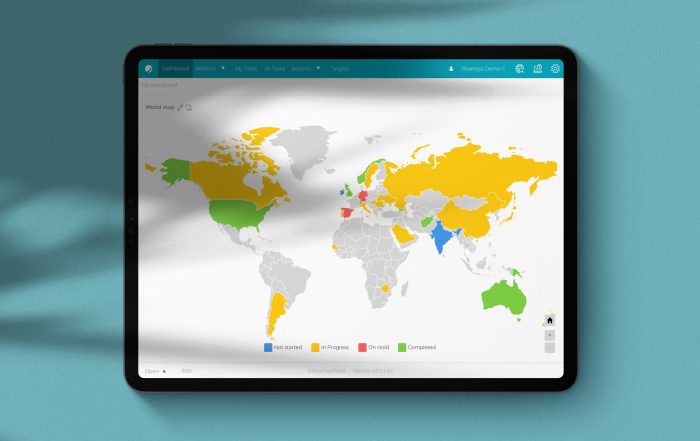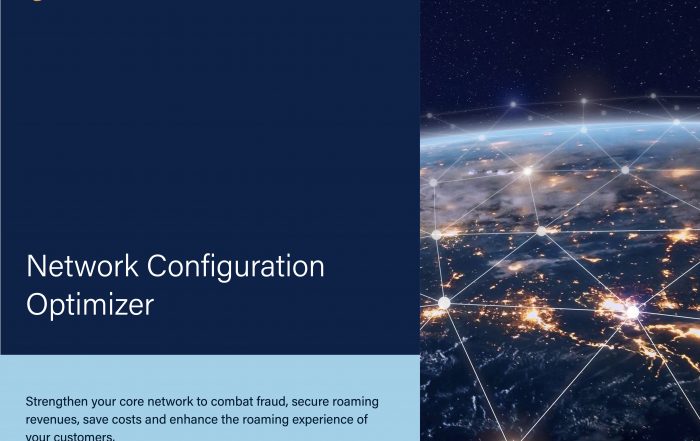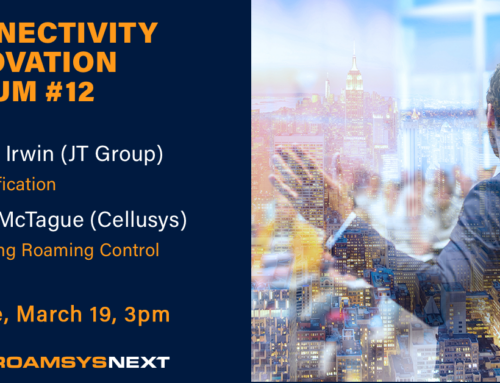
Gabriele Lieser
CUSTOMER SUCCESS MANAGER
Summary
Cyber security and fraud prevention are hard. IT professionals are bearing high-level responsibilities and need to stay up-to-the-minute informed about the latest threat vectors criminals are employing in the field. Fortunately, the GSMA already provides useful tools and information with the Fraud and Security Group (FASG) and documents on best practice countermeasures. Follow us into the realms of the GSMA and get valuable insight how they help the mobile industry advance.
Yes, cyber security and fraud prevention are hard. Analysts and investigators are expected to vigilantly gain and maintain control of their threat landscape. But too often, current tools require a lot of manual consolidation and integration of massive amounts of threat data into security technologies, teams and processes. MNOs would rather leave the people in charge to prioritize their efforts based on business criticality instead of shredding valuable time and slowing detection by manual work.

In RoamsysNext Insights our experts share their views on extensive industry topics and possible solutions we can offer.
For a long time, roaming was one of the leading fraud facilitators because of the time delay until the charging records arrived at the home network (from four hours up to three days). Luckily, compared to 20 years ago, fraud managers today have practically 100% visibility of roaming traffic as they can feed their FMS with data all available in the home network. Data feeds and call records from the visited network are no longer necessary.
However, there is no all-inclusive platform to gather international fraud intelligence, so limited visibility of global fraud trends inevitably takes its toll. In a constant tug-of-war, fraudsters take their jobs as seriously as we do, and, on a permanent basis, they are as creative and innovative as we are. MNOs are also often unable to put a stop to the craft due to the lack of or delayed cross-border jurisdiction and limited hours of operation whilst a lot of fraud occurs outside office hours.
Unsatisfactory but budget-friendly? How much longer?
Fraud drains operators of millions of dollars in annual revenue and, for a long time, writing-off the loss proved to be an unsatisfactory but budget-friendlier practice than identifying and prosecuting perpetrators.
However, the wind of change is blowing, and there is no time to lose. Increasing challenges due to global developments, fast-declining ARPU (Average Revenue Per User) and profit margins, rising costs and competitive surroundings call for more strategic and proactive leadership against fraud.

GSMA
For more than 30 years now, the telecom industry has come together and, since 1995, the GSMA represents the interests of mobile operators to governments and institutions worldwide. More than 750 operators with almost 400 companies in the broader mobile ecosystem, including mobile phone and device makers, software companies, equipment providers and internet companies, as well as organisations in neighboring industry sectors belong to the GSMA. Besides managing industry programs in collaboration with its members, the GSMA also handles industry working groups dealing with roaming and interconnection, fraud and security, and intellectual property.
FASG (Fraud and Security Group)
The Fraud and Security Group (FASG) is an amalgamation of the Fraud Forum and Security Group working subgroups in GSMA. Increasingly, fraud and security issues for mobile operators intertwined and these synergies led to the creation of the FASG to tackle these issues in a more holistic way. The mission of the Fraud and Security Group is to provide expertise and drive the industry’s management of fraud and security matters related to mobile technology, networks and services. FASG meetings take place three times per year in combination with conference calls in between.
Key topics include protecting customers against fraud, detecting and preventing fraudulent access to mobile services, identifying abuses of service terms & conditions, fast identification of fraud committed while roaming, mobile operator brand and reputational protection, minimising wholesale risks to mobile operators, NFV (Network Functions Virtualization) security, LTE (Long Term Evolution) network configuration and roaming security, 5G (Fifth Generation) security, infrastructure security and testing, interconnect signaling security, mobile malware, mobile device and application security, IoT (Internet of Things) security, UICC (Universal Integrated Circuit Card) security.
Best practice countermeasures
One of the FASG’s many responsibilities encompasses the assessment of the global fraud and security threat landscape and the suggestion of best practice countermeasures including guidelines for implementing screening policies, for example. Although some of the guidelines are for confidential use only and restricted to GSMA members, some of them are shared with other types of stakeholders (e.g. regulatory authorities). The most used guidelines for cyber security and fraud prevention include:
GSMA FF.21: Fraud Manual
GSMA FS.07: SS7 and SIGTRAN (Signal Transport) network security
GSMA FS.11: SS7 interconnect security monitoring and firewall guidelines
GSMA FS.19: Diameter interconnect security
GSMA FS.20: GPRS Tunnelling Protocol (GTP) security
GSMA IR.82: SS7 security network implementation guidelines
GSMA IR.88: LTE and EPC roaming guidelines
GSMA IR.77: Inter-operator IP backbone security requirements
GSMA IR.67: DNS and ENUM guidelines for service providers & GRX and IPX providers
TS 33.117, TS 33.116 or TS 33.250: Security assurance on critical nodes

There’s a lot of work to do, let’s get to it
The recommendation documents mentioned above are living documents that evolve with the latest attacks and threat landscape. However, they are updated perhaps once or twice a year. In defending networks and subscribers from the latest attacks, operators must use current intelligence to feed into their processes and systems.
Already today, our tools simplify and validate the correct configuration of every roaming relevant network element. This helps MNOs to block any unwanted or unauthorized traffic with very little effort. It certainly is an easy-to-use application to increase efficiency, transparency, and enhance resource management, and we continuously optimize our applications to serve our customers even better. Likewise, we are increasingly keeping an eye on upgrading security aspects. Since we are experienced in developing the InfoCentre RAEX Tools application on behalf of the GSMA, our tools are fully compliant to GSMA requirements and can be most easily implemented and aligned to your specific needs. Talk to us, we will listen to you.
Gabriele Lieser joined RoamsysNext in 2020 as Customer Success Manager to strengthen the bonds with our increasing number of customers and to support the marketing team. Gabriele has a strong background in corporate sales. She studied at the Universities of Trier (Germany) and Manitoba (Canada) and is incorporated in the RoamsysNext Client Service team.
“The team is a crucial asset”
It has been an exciting year for RoamsysNext. And as 2023 is coming to an end, we took the opportunity to talk with CEO Michael Grasmück about the past year, the growing team that becomes more and more international, and the comeback of an industry institution.
15 years of RoamsysNext – Driving Global Connectivity
RoamsysNext turns 15, so we talked with CEO Michael Grasmück about the anniversary, the early years, the move to Luxembourg and the future within the fast-developing roaming industry.
The new age of the IR.21 – Be ready for the full automation!
The new RAEX IR.21 schema will be released early 2023 with great changes coming that allow us to revolutionize the way we work with the IR.21 data.
Reporting at a glance: The RoamsysNext Dashboards
The RoamsysNext tools offer many reporting functionalities of which the dasboards play an important role. Learn more about using them in practice to identify bottlenecks, visualize your team's performance and bring a smile to your management's faces.
End-2-End-Automation with Network Configuration Optimizer
The RoamsysNext Network Configuration Optimizer is the perfect solution to make the shift from manual processing to more and more automated processing, with the option to move to full automation. Let's see how it works.
From Roamsys to RoamsysNext
Sixteen months ago, Roamsys relaunched and became RoamsysNext. Time to look back to a year we never expected to happen.
How to Stay Secure
What can MNOs do to stand up to the ever-growing tide of telecom fraud and protect their assets? Stay alert, use great tools, collaborate with other market players, and take the fight to the fraudsters.
Telecom Fraud Hurts
Telecom fraud is a rapidly growing area that has serious effects on national critical infrastructure (civil, healthcare, energy, agriculture...) and wider industrial processes.
The GSMA MISP – How Does it Help?
Malware information sharing and threat intelligence sharing has unbeatable benefits that make any caveats and challenges look small in comparison.
The Experts behind RoamsysNext Insights
RoamsysNext Insights has a growing fan base due to its substantial reports. With a wide variety of great information and exciting insights, they inspire beginners as well as professionals.
How to Treat 2G and 3G Closures without Becoming an Archivist?
As we are entering the era of 5G, legacy networks are in a state of flux and lose significance. This blog is about how the sunsetting of 2G and 3G networks will impact mobile communication.
How to Choose a Signaling Firewall Wisely
In times of global turbulences and increasing fraud attacks the decision for a sophisticated signaling firewall becomes more and more a priority. Some general considerations help to narrow down the choice.
Identity Fraud in Telecom
Identity fraud robs people of their virtual existence; it costs time, money and nerves. But there are countermeasures that help.
How to Tackle the Challenges in Combating Telecom Fraud
Telecom fraud can have dire effects on critical infrastructure and always causes painful loss of revenue. See how the industry's joint efforts tackle the challenges in combating telecom fraud.
Face the Breach: Rehearse an Emergency Before it Happens
In case of a breach, most companies are poorly prepared to take quick action. Have a look at some ideas on how to make the best of a difficult situation and save valuable time.
Working from Home during a Global Pandemic
Due to the broad introduction of remote working, businesses need to rethink their current cyber security measures and consider how they need to be adapted or further developed.
The Future of Roaming Trainings – An interview with Milja Hofman, CEO Roamingwise
Roamingwise is a well-known provider of roaming trainings, seminars and consultancy in a variety of international roaming topics. In our interview, CEO Milja Hofman reveals how she prepares professionals to drive the roaming world.
Historical Fraud Incidents and Lessons to be learned
In the course of history, no era is free from the practice of deception for personal benefit. Let’s have a look at what we can learn from historic fraud cases from ancient Greece to modern times.
Two-Factor Authentication rules!
For some time now, we have introduced 2FA and have contributed our share to provide more secure access to our tools. Norbert Becker, Head of Software Development, picks up the thread and provides engaging insights into his area of responsibility.
Introducing: The RoamsysNext Network Configuration Optimizer
Learn how the RoamsysNext Network Configuration Optimizer enables MNOs to switch safely to full automation and growing roaming revenues by providing effective and secure data management of all roaming related business information.
Introducing: The RoamsysNext Wholesale Roaming Manager
The RoamsysNext Wholesale Roaming Manager provides powerful collaboration and reporting tools for all roaming partner relationships by converging everything from service openings to the user’s roaming footprint, test SIM cards and tariffs, document and contact management.
Don’t fear the breach – three more ways to avoid configuration errors
Three ways to bliss: take bold measures to automate processes as much as you can, check your firewall’s security logs regularly and enforce centralized authentication mechanisms.
We’re in this together
In the second part of our interview with Alexandre De Oliveira, POST Luxembourg Cyberforce, he highlights major pain points in fraud detection and stresses the importance of global information sharing via the GSMA T-ISAC initiative.
Mastering today’s Fraud Landscape
Learn how Alexandre De Oliveira’s team at POST Luxembourg Cyberforce is mastering today’s fraud landscape with penetration tests, security assessments, the Telecom Intrusion Detection System (TIDS) and the Telecom Security Scanner (TSS).
How to avoid configuration errors
Hardening the network is a good way to get configuration errors under control. Introducing smart firewall rules and consistently updating these rules can be very time-consuming, but it’s a crucial measure to be taken.
From customer request to feature
In our newest “RoamsysNext Insights”, David Houstek and Adrian von Wendt elaborate on our customer focused production processes.
Making a Stand against Fraud
In an insightful interview, our CTO, Hendrik Hoehndorf, speaks about further GSMA initiatives on fraud detection and prevention such as the MISP (Malware Information Sharing Platform) and T-ISAC (Telecommunication Information Sharing and Analysis Centre).
Cyber security and fraud prevention – the GSMA approach
How does the GSMA approach cyber security, fraud detection and prevention? Look at the incredible useful tools and informations they provide with the Fraud and Security Group (FASG) and documents on best practice countermeasures.
How insecure GTP makes LTE and 5G networks vulnerable
GTP will still have an impact on 5G. Our tools can help to identify dubious requests faster, reduce reaction times and block incidents in a fraction of time.
How bad can it get? Signaling attacks strike the heart of each MNO
This blog is about how correct data is key to ensuring that mobile communication is of trustworthy origin, especially in case of signaling attacks. Notably, the roaming industry has to take action for data verification.
Grey Routes, Spam, Smish – funny words but nothing funny about SMS Fraud
SMS enjoys the reputation of being a safe channel for communication. But as any system, it is prone to abuse. We show you what needs to be done.
4 more Types of Telecom Voice Fraud MNOs are vulnerable to
Voice fraud is known as one of the top inter-carrier fraud cases, and in order to expose them, time and reliable data is crucial. This article shows that prevention is key to make sure that legitimate traffic is not obstructed.
Three Types of Telecom Voice Fraud that can destroy businesses
This issue shines a light on the variety of security breaches and fraud incidents: A cabinet of horrors.
Problems with telecom fraud? How big the issue really is. And how we can help
Fraud and security issues cause considerable problems within mobile network operators. But we are here to help.
Let’s talk about data quality
Most fraud and security issues are caused by misconfigured network nodes. This article shows, how RoamsysNext treats this problem on their quest for data quality.

